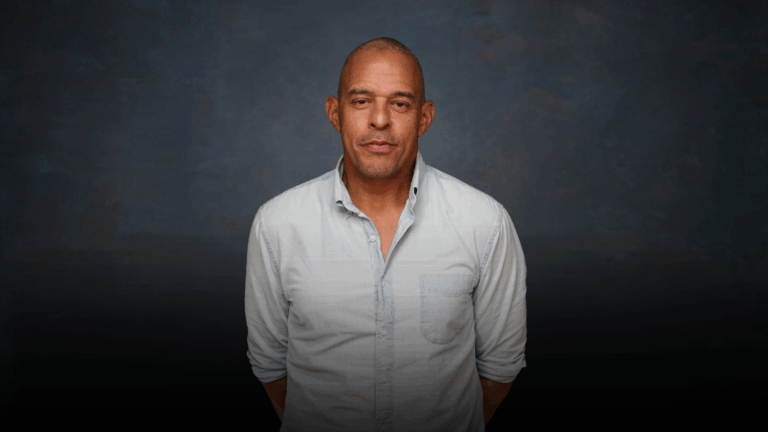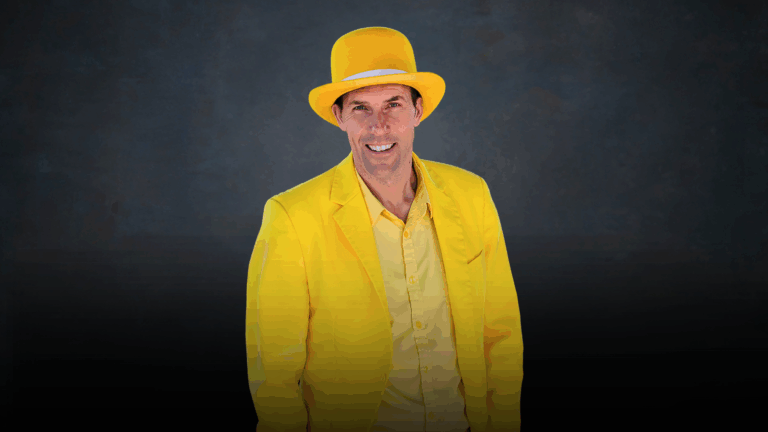This week’s conversation is with James Clear, a writer and speaker focused on habits, decision-making, and continuous improvement.
He is the author of the New York Times bestseller, Atomic Habits.
His work has appeared in Entrepreneur magazine, Time magazine, the New York Times, the Wall Street Journal and on CBS This Morning.
His website, jamesclear.com, receives millions of visitors each month and hundreds of thousands subscribe to his popular email newsletter.
So why do habits matter?
We all have tons of habits, things like signing your name or knocking on the door, ringing the doorbell, tying your shoes or unplugging the toaster after each use… but how do we build more important or meaningful routines around things that really matter to us?
For James, it starts with choosing what you want to optimize for and the type of identity that you want to reinforce, the type of person you want to become.
So in this conversation, we dive into some best practices for habit development and how to create a system that is organized toward the outcome you desire.
“The more precisely you know what you want, the better your strategy can be, the more obvious the actions and choices are that you should take.”
In This Episode:
What got him interested in habits?
I played a bunch of sports growing up and then ended up playing baseball through college. And any college athlete can tell you, like habits are a big part of what you do, you’re practicing different drills, developing your skills, even stuff like in the gym or showing up to practice at the same time every day, like there’s a lot of ritual and routine built in. And one great thing about working on a sport, in my case 17 years, is that you see your skills develop, you see consistency payoff, you see the benefit of building habits each day and like working on that. And I did not have a language at the time for that, like I was just showing up and doing what my coaches told me and training in the gym and trying to do what I was supposed to do to be a better player.
What surprised him when he was researching habit development?
The influence of your environment. Something that happens with sports is that your teammates are like family, you don’t really get to choose them like you don’t choose the guys that you’re recruited with, or that are coming on the team with you, but you have to make those things work. And in my case, I was really lucky, I had great teammates. And looking back on it after having read more about how habits work and how they form and how they stick, you realize that the social environment is actually a huge factor and habits that stick, particularly those that stick for a long time
Pick your friends wisely
Anytime you see habits that tend to stick for years or for decades, there’s often a strong social component associated with it. And I think the practical takeaway is you want to join groups to join tribes where your desired behavior is the normal behavior because of it’s normal in that group then it’s going to be very attractive for you to stick to it. And so many of our behaviors are like that, we soak up the habits and behaviors of the people that we’re around, we soak up what the normal behavior is. And so I think it’s becomes very important, increasingly important as you discover what’s important to you as you discover what you’re optimizing for.
Optimizing for what you want most
I’ve been doing this little exercise for the last couple of weeks where I start each day with a blank sheet of paper and I write at the top of it, “What do I really want?” And it’s surprising how useful it can be to ask yourself the same question again and again. You would think it would just get repetitive and boring and it’s not useful anymore, but actually doing it each day, your answers change a little bit, they get more precise, things that you thought we really wanted turned out to just be a middle step and you can skip them entirely. And the better of an answer you have to that question, what am I optimizing for? What do I really want? The better your strategy becomes because you cut out a lot of wasted effort and energy.
Ok you know you what you want, now what?
So I’ve got health and marriage, family, friends, work, and lifestyle. And those are not all these the categories I use but that’s just what I happen to do. And so I did it in big picture ways, like to be in the best shape of my life or to enjoy lifting weights each week. So I’m like trying to visualize what that would look like. And then I’ve got other stuff like I basically grew up on my grandparents farm and so I love being outdoors and stuff, but I also like a lot of things of city life. So I like under lifestyle, have enjoyed the ideal blend of city and country life. And so basically what I’m doing here is visualizing the outcomes that I want or what that might feel like. And then what I tend to do after that, and I don’t do this every time but what I like to do is if I feel like I have a good clear picture of what I want, then the next step is I try to come up with some action steps, and it doesn’t have to be for everything but just like three to five things that I can actually do.
His philosophy
My general philosophy is I try to work backwards from magic, so what would the magical outcome be? And let’s define what that is. And then I do need to come up with, like I said, those action steps or that path to achieving it.
It’s important to care, but not take life too serious
I feel like the ideal strategy is one of trial and error and experimentation because nobody can figure it out all ahead of time. If that’s true, if you’re going to do a lot of trial and error, you need to have at least a little bit of sense of humor because there’s going to be a lot of errors, there’s going to be a lot of failed experiments.
The meaning of “atomic” habits
The way that I like to think about these small habits is as a system of behaviors organized toward the outcome or lifestyle that you want. And so the phrase that I like, the way that I like to encapsulates philosophy is you do not rise to the level of your goals, you fall to the level of your systems. And if we put a little finer point on that, what we’re talking about is your goals, your desired outcome, your target, where you’re shooting for, what is your system? It’s the collection of daily habits that you have. It’s like each little habit is like a gear in the overall machine.
Identity based habits
What is the identity I want to reinforce, who is the type of person I want to become, who is the kind of person that could achieve the outcome that I want? That’s another way to get to that question, because a lot of people… The idea of like you’re trying to choose your identity, you’re trying to pick your values or principles. It’s like a really big picture thing and sometimes it’s hard to have a good answer to that, but most people know the result they want, they know that they want to get six pack abs or they want to double their income or whatever. And so you can say, “Okay, fine, who is the type of person that could have six pack abs?” And maybe you realize, “Oh, it’s the type of person who doesn’t miss workouts.” And so now you’re focused more on building habits that are aligned with that identity and that could get you to do something like, “Do one pushup.”
Questions over advice
I tend to prefer questions over advice and the reason that I say that is that even if the advice is good, even if it comes from somebody who’s experienced or has accomplished what you want to accomplish, or the circumstances are fairly similar, advice is somewhat brittle in the sense that it only applies in a narrow context. The world is dynamic, not static. And if the circumstances change or your objectives change a little bit, the advice doesn’t really apply, or maybe who knows, maybe the advice applies to the situation, but your strengths are different than that other person. And so now you’re not able to make as good of use of that. So instead, what I prefer questions because you can carry a question with you around to different environments and it can serve, you can kind of eliminate the answer for you. So for example, one of these identity-based habits questions that I like is, “What would a healthy person do?” And so just by having that one good question, you can figure out your own advice, you can figure out your own solution based on what you’re facing. And so for that reason, I like questions a lot.
The deep truth about habits
A habit must be established before it can be improved, it has to become the standard in your life before you can optimize it or scale it up into something more. But we get really all or nothing with our habits, we feel like if I don’t have the ideal diet plan or the best business idea or the perfect workout program then I shouldn’t start yet. Like we often think I can’t get started, I can’t take action yet I need to learn more. But the truth is the best way to learn is usually by taking action. It’s usually by getting started.
How 1% changes can make a huge difference
Small improvements, 1% changes, are not just nice to have, they’re not just like a bonus on our cherry on top of your performance, but actually can be the pathway to unlocking like elite levels of success. I think it’s a little surprising, a little counter-intuitive. If anything, if nothing else, it’s certainly underappreciated. And excellence is often not about radical change, like it’s often about accruing small improvements over time, it’s often about waking up each day and trying to find a way to get 1% better and layering those changes on top of each other. If you have good habits, your time is your ally. All you need is for time to keep working for you. But if you have bad habits begin 1% worse each day, or you’re staying kind of stuck in neutral, time becomes your enemy, every day that clicks by you dig the hole a little bit deeper. And so it’s much more about mastering your trajectory than your position. It’s much more about getting 1% better than trying to have some magical outcome on day one.
Books:
Atomic Habits: An Easy & Proven Way to Build Good Habits & Break Bad Ones



